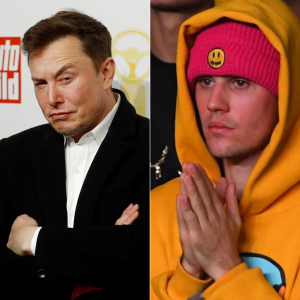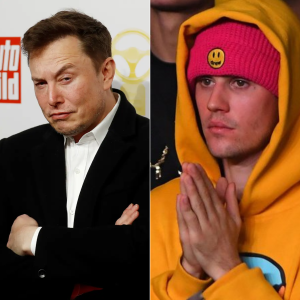Jaguar Wright’s Explosive Allegations Against Diddy, Clive Davis, and Andre Harrell

The music industry is no stranger to controversy, but recent allegations made by singer Jaguar Wright have brought new attention to some of its most powerful figures. In a series of explosive claims, Wright has accused Sean “Diddy” Combs, Clive Davis, and the late Andre Harrell of manipulation, abuse, and exploitation. The allegations, which touch on topics ranging from personal abuse to the mysterious death of Whitney Houston, have sparked widespread discussion about the darker side of the entertainment world.
Diddy: A Victim and a Perpetrator?
One of the central points in Jaguar Wright’s allegations is her claim that Diddy was manipulated and exploited by Clive Davis and Andre Harrell. According to Wright, these industry titans saw potential in a young Diddy and groomed him to become a powerful figure in the music world, all while maintaining control over him. Wright suggests that Diddy’s rise to fame was not solely due to his talent and ambition but also because of strategic maneuvering by Davis and Harrell, who allegedly used their influence to mold him into the mogul he is today.

However, Wright also paints a picture of Diddy as both a victim and a perpetrator. While she alleges that he was manipulated by Davis and Harrell, she also accuses him of perpetuating cycles of abuse and exploitation. These claims are bolstered by recent lawsuits and allegations against Diddy, including sexual abuse claims made by his ex-girlfriend Cassie Ventura and other women.
Cassie’s allegations, which include claims of physical, emotional, and sexual abuse during their relationship, have further tarnished Diddy’s public image. While Diddy has denied these accusations, they have sparked broader conversations about power dynamics and abuse within the entertainment industry.
Clive Davis and the Death of Whitney Houston
In perhaps the most shocking claim, Jaguar Wright alleges that Clive Davis, one of the most influential figures in music history, played a role in the death of Whitney Houston. Houston, who was signed to Davis’ label and was one of his most celebrated protégés, died tragically in 2012. Wright suggests that Davis exploited Houston throughout her career, pushing her beyond her limits and failing to protect her from the pressures of fame and addiction.

Wright’s allegations go further, insinuating that Davis’ focus on maintaining his empire came at the expense of Houston’s well-being. While there is no concrete evidence to support these claims, they echo longstanding criticisms of how the music industry treats its stars, particularly women, as disposable commodities.
Andre Harrell’s Role in the Industry
The late Andre Harrell, another key figure in Wright’s allegations, is credited with launching Diddy’s career and shaping the sound of hip-hop and R&B in the 1990s. Wright alleges that Harrell played a role in grooming Diddy for success, but at a personal cost. She claims that Harrell, like Davis, prioritized profits and control over the well-being of those he mentored.
While Harrell is remembered by many as a visionary and a trailblazer, Wright’s allegations suggest a more complicated legacy, one intertwined with the exploitation and abuse of power.
The Broader Implications of Wright’s Allegations
Jaguar Wright’s claims are not just about individual figures; they highlight systemic issues within the music industry. From manipulation and abuse to the pressure placed on artists to conform to the demands of their labels, her allegations underscore the darker realities of fame and success.
Wright’s accusations also raise questions about the accountability of powerful industry figures. For decades, individuals like Diddy and Clive Davis have wielded immense influence, shaping careers and controlling narratives. Wright’s willingness to speak out challenges the culture of silence that has long protected such figures from scrutiny.
The Industry’s Response
As these allegations continue to gain attention, the music industry faces mounting pressure to address its longstanding issues. Diddy, for his part, has denied the allegations against him and filed countersuits in response to some of the claims. Clive Davis has not publicly addressed Wright’s accusations, and with Andre Harrell no longer alive, his legacy is left to interpretation.
Fans and critics alike are calling for greater transparency and accountability, not just for the individuals named by Wright but for the industry as a whole. Many see this moment as an opportunity to dismantle the toxic power dynamics that have enabled abuse and exploitation for far too long.
Conclusion: A Call for Change
Jaguar Wright’s allegations have reignited discussions about the hidden costs of success in the music industry. Whether or not her claims are substantiated, they serve as a stark reminder of the need for reform. The stories of Whitney Houston, Cassie Ventura, and countless others reveal a pattern of exploitation that cannot be ignored.
As the entertainment world grapples with these revelations, one thing is clear: the time for accountability and systemic change is long overdue. The voices of survivors and whistleblowers like Wright must be heard, and the industry must confront its past to create a safer and more equitable future for all.






